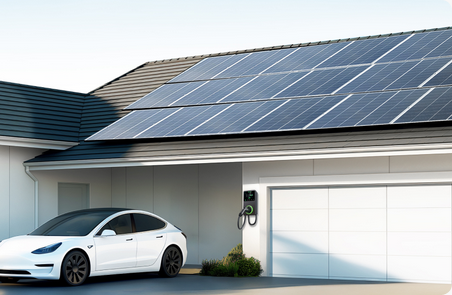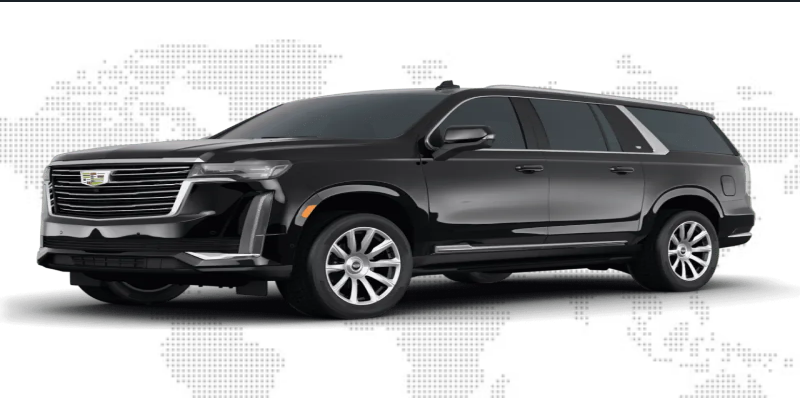
As electric vehicles (EVs) become more mainstream, the convenience of home charging is no longer a luxury—it’s a necessity. Whether you’ve just made the leap to electric or are planning your transition soon, understanding how to choose the right charger for your home is essential. From charging speed and compatibility to connectivity features and cost, there’s a lot to consider. In this guide, I’ll walk you through what I learned when researching home charging options, why I ultimately went with the autel ev charger, and what you should know before making your own decision.
Why Home EV Charging Matters More Than You Think
Let’s start with a simple truth: charging your EV at home is way more convenient than relying on public stations. Not only does it save you time, but it can also be far more cost-effective. Many new EV owners think they can get by with public chargers or the Level 1 charger (the one that plugs into a standard outlet), but that mindset quickly fades after a few weeks of real-world driving.
Level 1 chargers are painfully slow—think 4 to 5 miles of range per hour. For a full charge, you might be waiting 30+ hours. That just doesn’t cut it if you drive regularly or have multiple EVs in the household.
That’s where a Level 2 home charger comes into play. These units typically add 20–50 miles of range per hour, which means you can fully recharge your EV overnight. It’s the difference between range anxiety and range confidence.
What to Look for in a Home EV Charger
When I first started researching EV chargers, I quickly realized there were more options than I expected. Here are the key factors I learned to consider:
Charging Speed (Amperage)
Higher amperage = faster charging. Most Level 2 chargers operate at 32 to 50 amps. Make sure your home electrical panel can support the amperage of the charger you’re considering. I ended up upgrading my panel slightly to support a 40-amp charger, and it was worth the peace of mind.Connector Compatibility
Nearly all EVs in North America use the J1772 connector—except Teslas, which require an adapter. Some chargers come with Tesla-specific connectors, but most use J1772, making them universal for non-Tesla EVs.Smart Features
I didn’t realize how important Wi-Fi and app connectivity would be until I started using them. Features like scheduled charging (to take advantage of off-peak electricity rates), remote monitoring, and usage statistics are super useful.Weather Resistance & Durability
Since many people install their chargers outdoors, it’s essential that the unit be waterproof, dustproof, and built for all climates. If you live somewhere with extreme weather, this is non-negotiable.Ease of Installation
Unless you’re a licensed electrician, you’ll need to hire a pro to install your charger. Look for chargers that come with clear instructions and support common setups (hardwired or NEMA plug).
Why I Chose the Autel EV Charger
After comparing top brands and reading way too many reviews, I went with the Autel MaxiCharger Home. Here’s why it stood out to me:
Versatility: It supports up to 50 amps, giving me flexibility for future EVs.
Smart App Control: The app is intuitive, with great features like remote start/stop, charging history, and time-of-use scheduling.
Rugged Design: IP65-rated for dust and water resistance, perfect for outdoor installation.
Built-in Safety: Autel includes ground fault protection and overcurrent/overvoltage safeguards.
OTA Updates: The firmware updates over-the-air, so it improves over time without me lifting a finger.
Since installing it, charging has become a seamless part of my daily routine. I plug in at night and wake up with a full “tank,” all without thinking about it.
Bonus: Integrating Solar Energy
If you already have solar panels or are planning to install them, a smart charger can help you maximize your investment. Some models, including those from Autel, integrate with solar systems or home energy management platforms. You can prioritize solar charging during the day or even pull data on energy usage and carbon savings.
Not only does this reduce your electricity bill, but it also makes your driving truly sustainable.
How Much Does It Really Cost?
Here’s a rough breakdown of what I paid:
Charger: $599 for the Autel MaxiCharger (price varies by model and promotions)
Electrical Work: $750 to upgrade my panel and install the charger
Permit and Inspection: ~$150, depending on your city
Total: About $1,500
It might sound steep, but with federal tax credits and local incentives, I was able to knock about $400 off the total. Over the life of the charger, that’s a smart investment.
Growing EV Infrastructure vs. Home Charging
You might be wondering if investing in a home charger is still necessary with more public charging stations popping up. The answer is yes—for several reasons.
First, public chargers are often busy, especially fast-chargers near shopping centers and highways. Second, they can be expensive compared to your home electricity rate. And third, they still can’t beat the convenience of starting every day with a full charge.
Even with excellent public infrastructure, nothing beats the reliability and control of home charging.
Tips for a Smooth Installation
Check your electrical panel capacity before purchasing a charger.
Hire a licensed electrician with EV charger installation experience.
Plan the installation location based on your parking habits.
Consider adding a lock or security camera if your charger is installed outside.
Looking Ahead: The Future of Smart Charging
With AI, IoT, and home automation on the rise, the way we charge our EVs is evolving. Future chargers will likely offer:
Load balancing for households with multiple EVs
Integration with smart home assistants (Alexa, Google Home)
Grid-aware charging that supports vehicle-to-grid (V2G) energy return
Even better predictive analytics to optimize your charging schedule
Companies like Autel are already ahead of the curve by building upgradable chargers that are ready for these features.
Final Thoughts
If you’ve invested in an electric vehicle, installing a reliable home charger is the next logical step. After doing my homework, I realized it’s not just about plugging in—it’s about creating a smarter, more sustainable lifestyle. The autel ev charger gave me peace of mind, convenience, and real energy savings. And honestly, I kind of enjoy the satisfaction of topping off my “tank” each night from the comfort of my driveway.
Whether you’re new to EVs or just looking to upgrade your setup, taking the time to choose the right charger will pay off for years to come.

















Write a comment ...